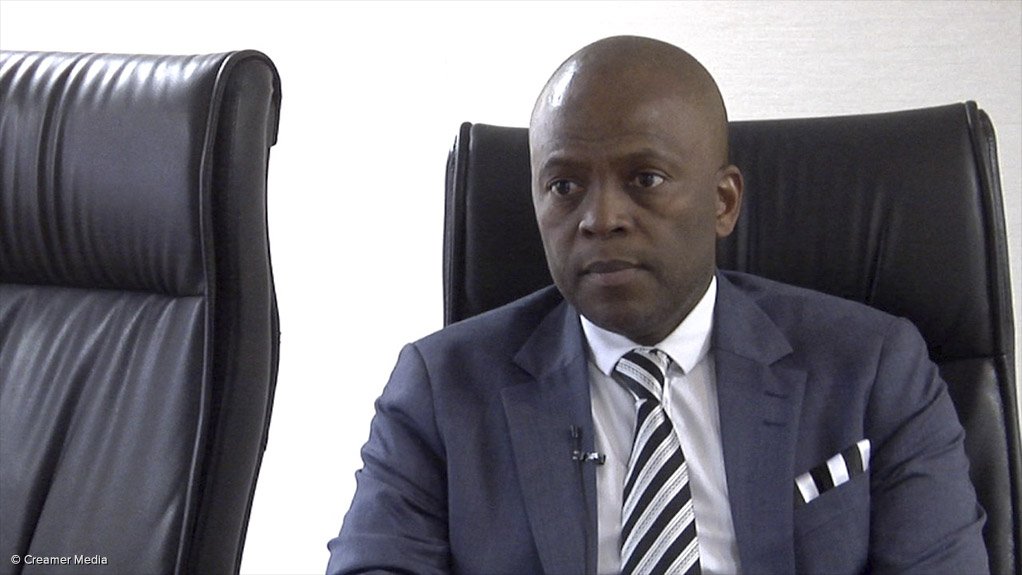While the country is in an economic crisis, having just entered a technical recession and grappling with no economic growth, this presents an opportunity for the Black Business Council (BBC) and its members to find ways to help overcome the challenges, president Sandile Zungu said on Wednesday.
Speaking at the BBC’s yearly summit, in Johannesburg, Deputy Finance Minister David Masondo pointed out that the dire economic state – with the worst economic performance since the global economic crisis of 2008/9 – was reflected in a number of economic indicators.
This includes a high unemployment rate of above 29%, which could lead to societal tensions if it persists.
South Africa is also unable to collect enough revenue to provide services and grow the economy. Masondo indicated that, for 2019, there had been an undercollection of R63-billion.
With this deficit set to continue, the country will need to borrow money to make up the shortfall.
While Masondo noted that borrowing was not inherently bad, where this money was being spent was an issue that had to be dealt with.
For example, funds will be used to bail out failing State-owned enterprises that have high cost structures and low revenue generation.
Moreover, public debt, which is already at R2.5-trillion, is projected to increase further over the next three years, along with the debt service costs.
South Africa also has to plan for the potential impact of the coronavirus, or Covid-19, on its economy.
Masondo noted that the aviation industry had already been affected, with air travel already declining. There had also been a decline in tourism numbers, with anticipated job losses of about 1 000, and indications that the industry would lose about R200-million, a worrying figure given that this is an industry government had targeted for growth and job creation.
Masondo stressed that tough conversations would have to be had with different partners, including labour, about the best way forward.
Masondo, however, said he was looking forward to the role black entrepreneurs and professionals could play in helping in the process of structural reform and growing the economy.
In this vein, Zungu called for stronger leadership in these “turbulent times”.
From the BBC’s perspective, he highlighted various areas where the BBC could contribute.
Firstly, he posited that it could assist in fixing Eskom, which he termed the country’s biggest threat. One of the biggest constraints to growth in the country was unplanned power outages and insecurity of energy supply.
Secondly, he emphasised the need to fix other SOEs, which were facing a multitude of well-documented challenges, including governance and funding issues.
Zungu also said the “potential and power” of the black industrialisation programme should be harnessed.
While he noted that this presented a huge opportunity to generate jobs and growth, he emphasised that government had to be aware that reindustrialisation had to happen in a way that creates opportunities for local stakeholders.
He also highlighted the need to hasten black participation in nascent industries, citing the cannabis industry as an example.
Further, he said the Fourth Industrial Revolution had to be embraced.
Zungu urged government to speed up the auction of high-demand radio frequency spectrum, and the allocation process to introduce real competition in the information and communication technology sector.
Lastly, he said the African Continental Free Trade Agreement provided significant opportunities for black business, presenting an opportunity to turn around the fortunes of the continent, as well as to benefit South Africa.
Zungu informed that Trade and Industry Minister Ebrahim Patel had noted that government was ready to work with black business to ensure that it benefited from the agreement as well.
Also speaking at the event, Higher Education, Science and Technology Minister Dr Blade Nzimande said that, in these trying times, there was a need to invest in education, skills development, innovation and training.
Moreover, he emphasised that working with the private sector was one of his priorities. In this vein, he indicated that the department wanted to collaborate with the BBC on a partnership in skills and innovation training.
Zungu, meanwhile, lamented the endemic nature of corruption in the country, saying that this robbed black business of the chance to benefit from meaningful business opportunities.
He said that while the changes being implemented by President Cyril Ramaphosa were good and welcomed, these were moving too slowly.
EMAIL THIS ARTICLE SAVE THIS ARTICLE ARTICLE ENQUIRY
To subscribe email subscriptions@creamermedia.co.za or click here
To advertise email advertising@creamermedia.co.za or click here











